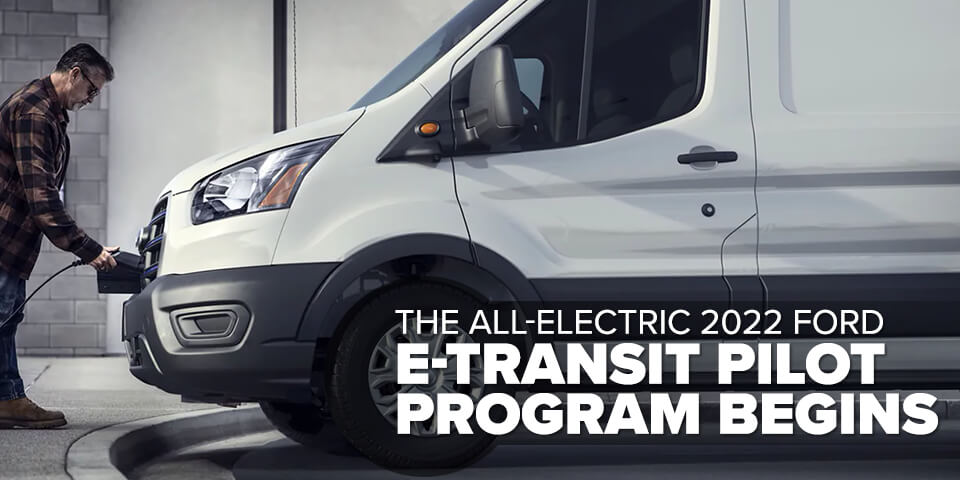
The All-Electric 2022 Ford E-Transit Pilot Program Begins
The all-electric 2022 Ford E-Transit cargo van will begin production soon, with vehicles arriving at dealerships in the next few months with a starting list price of $43,295 to $52,690.
But preproduction models are already "in the wild" with the Ford Pro pilot program, which includes Penske Truck Leasing and National Grid as among the first companies to begin operating the electric vans in real-world scenarios.
So, if you're an expedite owner-operator or fleet owner who runs cargo vans, keep your eye on this development. That's because, as electric vehicle (EV) battery ranges increase and costs continue to drop, bringing the pricing closer to comparable gas-powered vans, purchasing an electric van might become a practical and affordable option for you in the next few years.
What's involved with the pilot program?
Participating companies deploy E-Transit vans in specific applications to evaluate performance, identify the best route types, and explore charging solutions when connected to the Ford Pro ecosystem.
One Ford Pro system being evaluated is E-Telematics. This technology helps owners gain real-time vehicle insights-with charge event monitoring, vehicle tracking, state of charge, range, charge history and logs, charging/battery settings and alerts, and departure preconditioning (to maximize range and preserve battery life).
Another system is Ford Pro Charging which enables home, public, and depot charging tailored to fleet operational needs.
Employee home charging includes hardware and software to manage overnight charging, with access to energy reports to simplify driver reimbursement.
When public charging is needed, operators have access to the BlueOval Charge Network, which Ford said is the nation's largest public charging network with more than 19,500 charging stations and 63,000 charging plugs nationwide.
Ford's depot charging systems include hardware and software that monitor optimal charging times for fleets to help avoid the higher costs associated with peak charging hours.
Penske plans to evaluate and validate E-Transit van capabilities, driving experience, and charging strategy for specific applications, such as rentals to small- and medium-sized commercial businesses.
"We expect to see strong utilization and interest from customers making final-mile deliveries, regional deliveries, and eventually consumer use for smaller household moves," Art Vallely, president, Penske Truck Leasing, said.
National Grid, an operator of several utility conglomerates, recently took delivery of a preproduction low-roof E-Transit cargo van. The company will test the electric van on home meter-reading routes to ensure it can perform the same operations now performed by the company's gas-powered vehicles.
"Over the next decade, National Grid will be moving to a 100% electric fleet for our light-duty vehicles and working to replace medium- and heavy-duty vehicles with sustainable options," Badar Khan, president of National Grid, U.S., said. "Last year, we began testing electric backhoes, and this year, e-vans could bring us closer to our goal of net zero emissions by 2050,"
Ford Pro will use feedback and data from the pilot program to validate vehicle performance across a broad range of use cases, upfits, temperatures, and driving environments to refine products and develop additional training tools.
"Beyond supplying all-electric vehicles to customers, Ford Pro is helping businesses determine better solutions for energy management and fleet efficiency," Ford Pro CEO Ted Cannis said. "Our services link to the vehicle and into the entire operational environment of the business, which is the only way EVs will stick. Anything else is just disruptive to their business bottom line."
The 2022 E-Transit will offer eight configurations, including a cargo van with three roof heights and three lengths, plus chassis cab and cutaway versions, with a battery range from 108 to 126 miles, depending on the configuration. ( See technical specs.)
